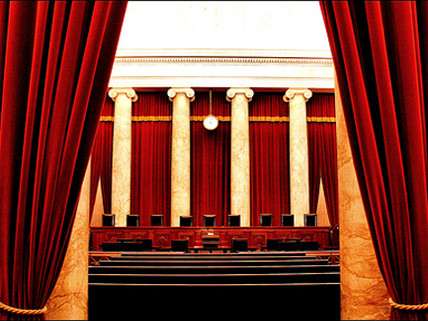Today at SCOTUS: Police Errors vs. the Fourth Amendment

The Supreme Court is back in business today, kicking off its 2014-2015 term with oral argument in the case of Heien v. North Carolina, a Fourth Amendment dispute with major implications for the liberty of everyone who comes into contact with the police while driving a car. Here's the story:
In 2009, North Carolina police stopped a vehicle on account of a broken right brake light. The car's left brake light worked just fine. That traffic stop led to a search of the vehicle, which in turn led to the discovery of a plastic sandwich bag filled with cocaine. The driver, Nicholas Heien, was arrested and charged with attempted drug trafficking.
But there was a problem. According to North Carolina law, motor vehicles are only required to have "a stop lamp." In other words, it's perfectly legal to drive around the state with one busted brake light so long as the other one works. The arresting officer in this case was wrong about the law and had no legal basis for the original traffic stop.
Did the officer's mistaken actions violate the Fourth Amendment's guarantee against unreasonable searches and seizures? The North Carolina Supreme Court thought not. "So long as an officer's mistake is reasonable," that court ruled, "it may give rise to reasonable suspicion."
The Supreme Court will now review that court's questionable judgment. "The officer's mistake here derived from his own aggressive interpretation of the law," Heien's lawyers told the Court in their main brief. "Only by refusing to excuse such mistakes can officers be properly deterred from engaging in such overly ambitious readings of the traffic code, at the expense of individual liberty."
Last week I profiled three Supreme Court cases to watch in October 2014.


Show Comments (25)